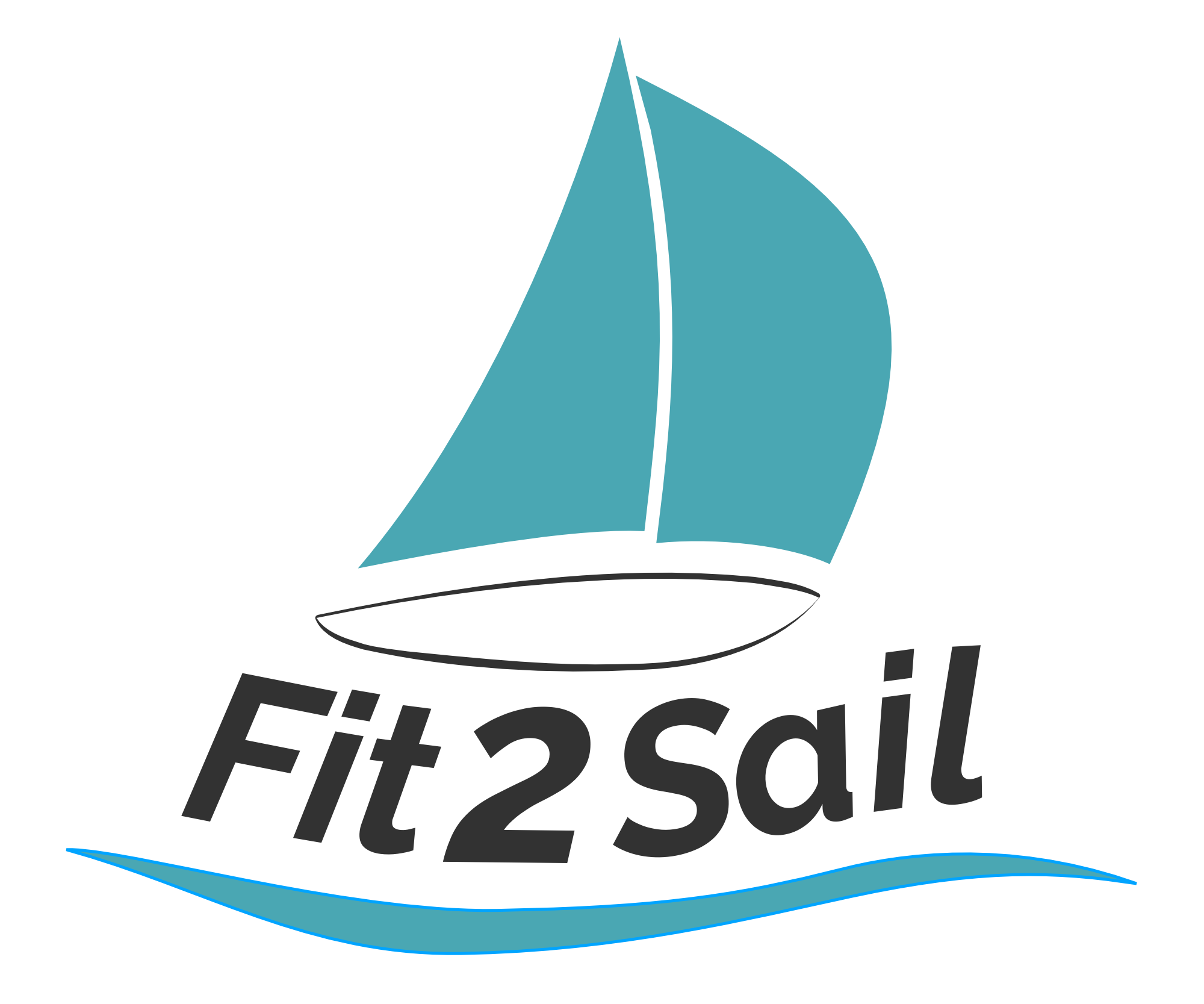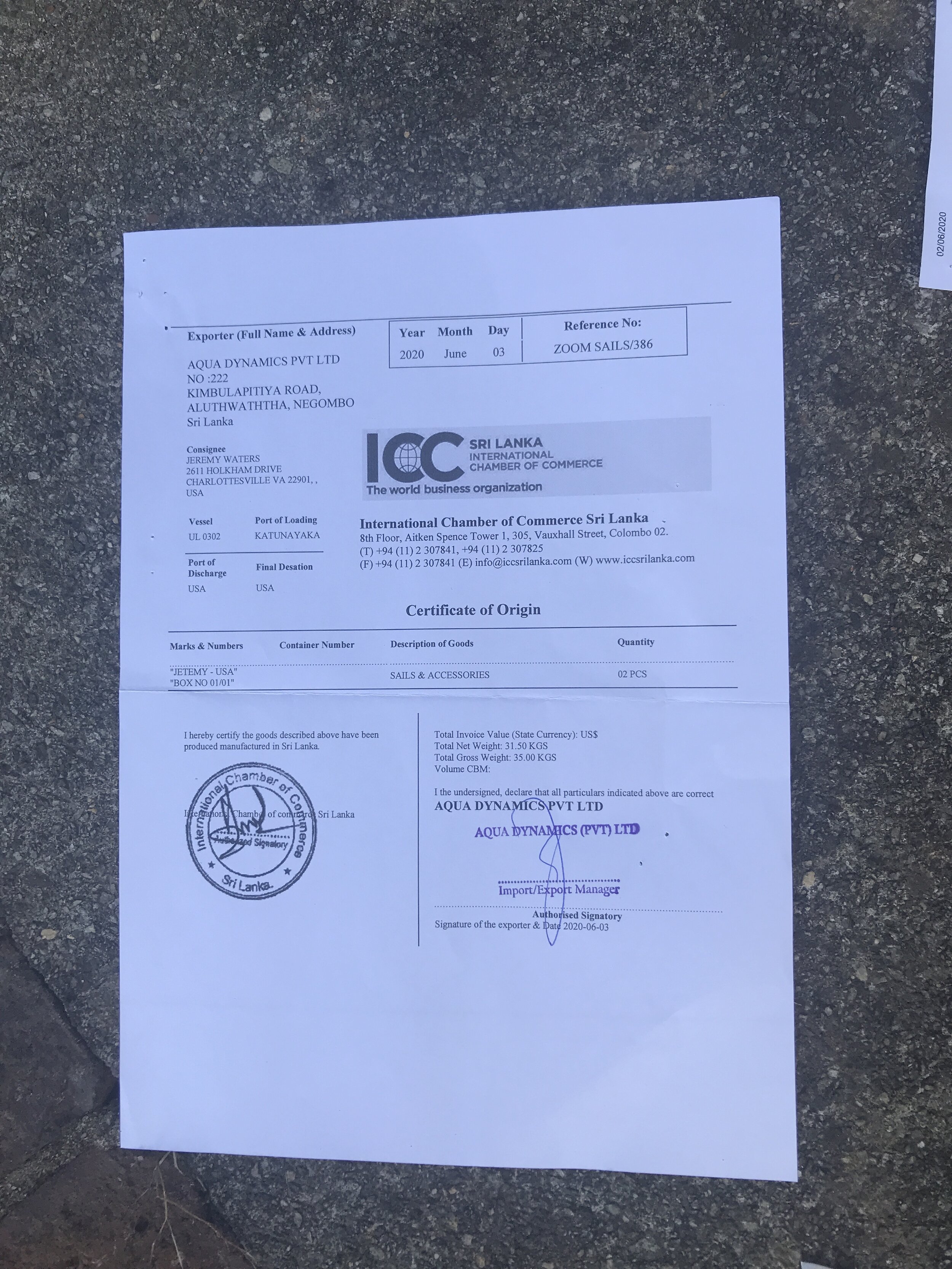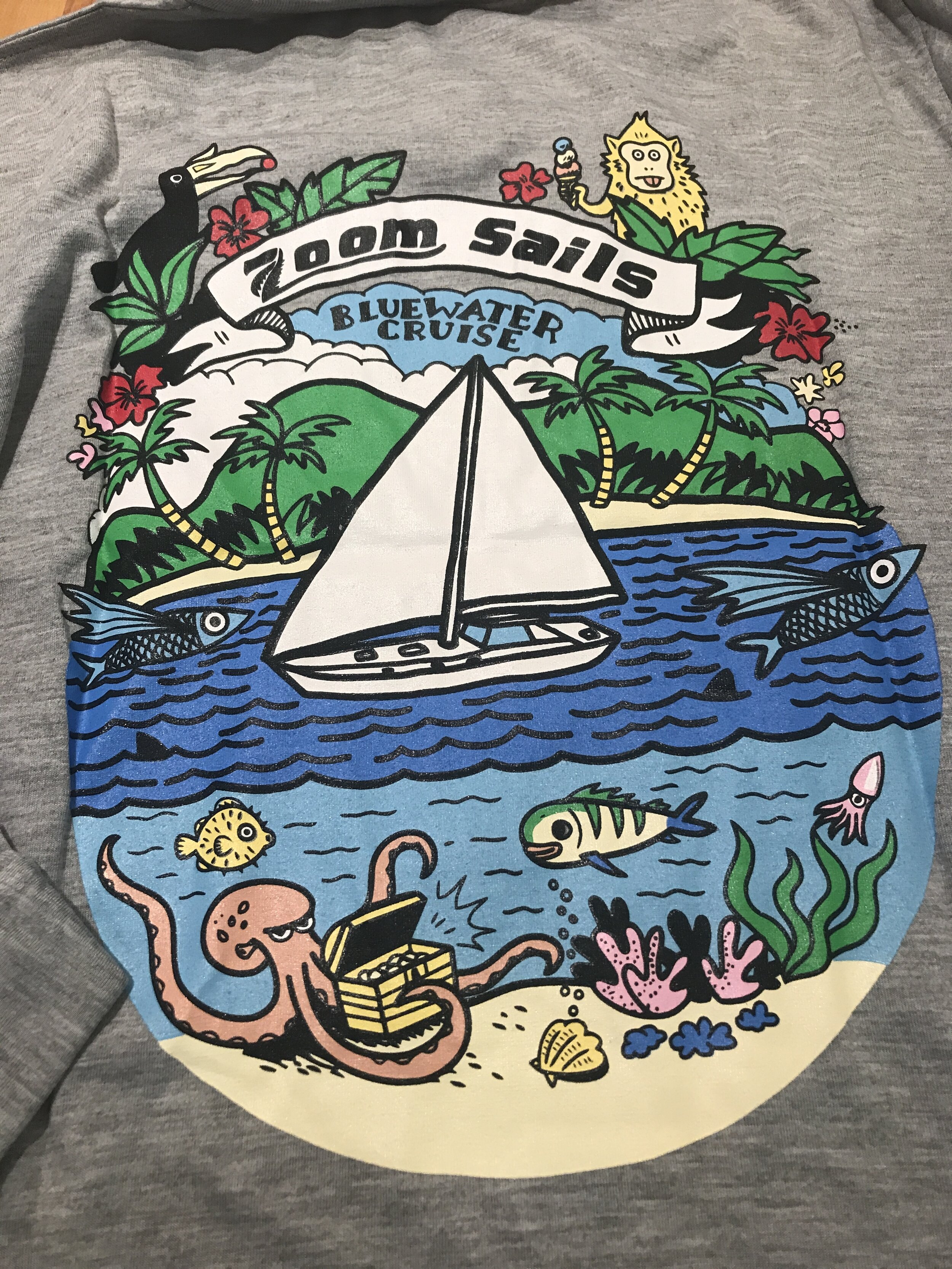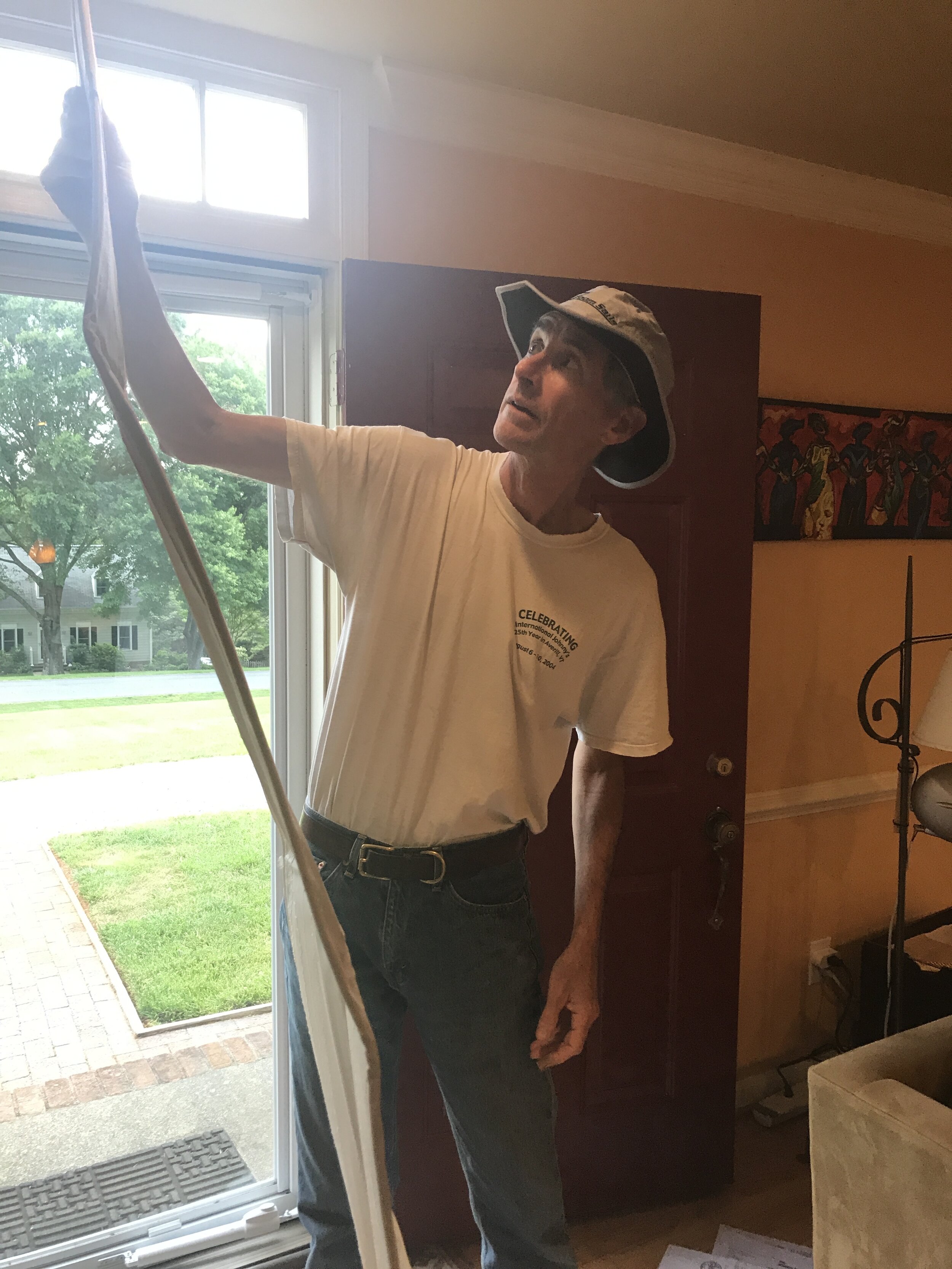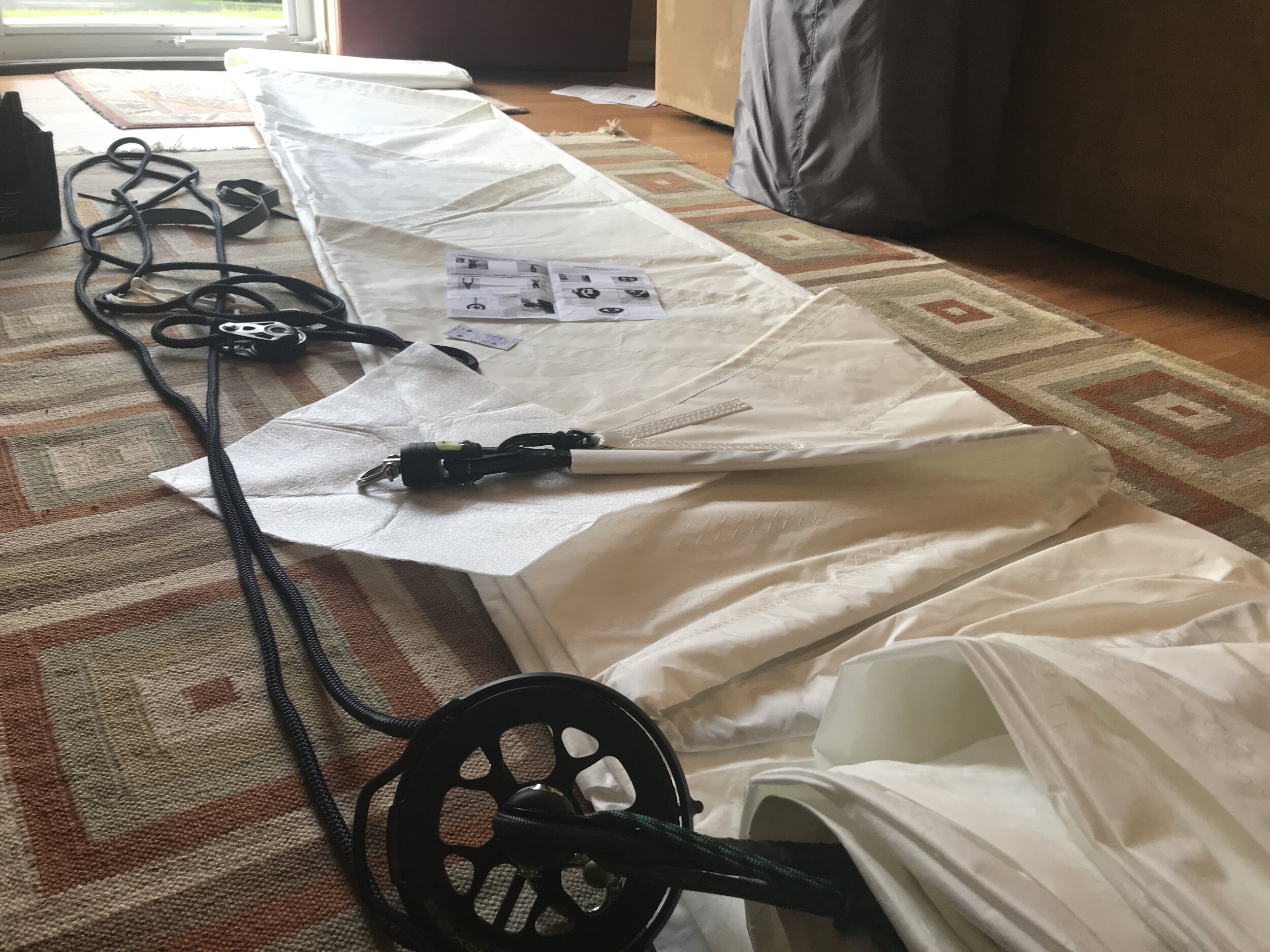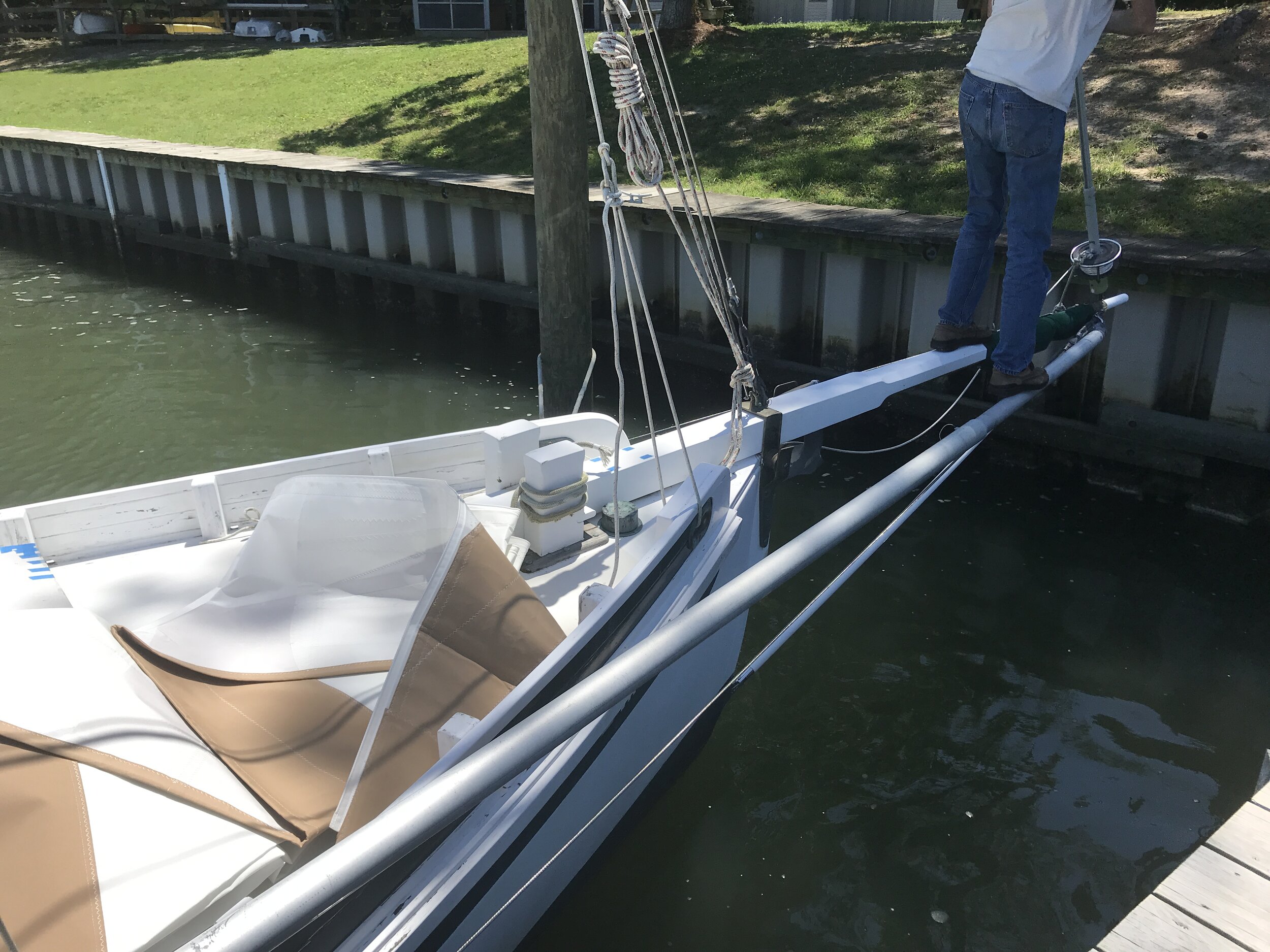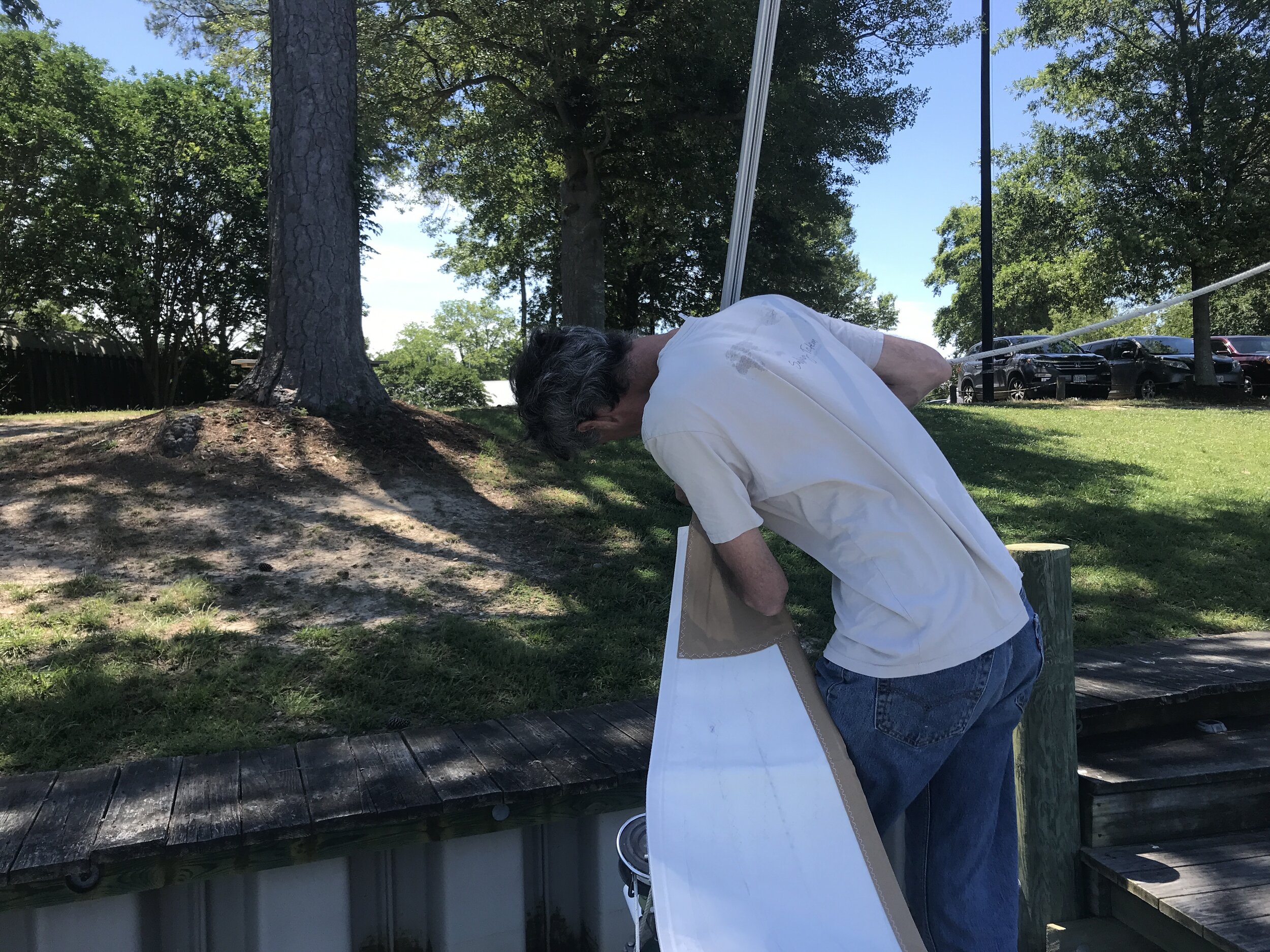Measure Twice, Cut Once
Put this under the “lessons I hope we’ve learned” category. When it comes to ordering sails, measure a lot more than twice before ordering. (And as a very very important point - this is 100% our fault.)
We’ve had new sails built exactly twice since we’ve had Calypso. We ordered a new mainsail from a local sailmaker (they were fabulous and even put a BCC logo, unexpectedly and at no charge, on the sail - this still makes us smile every time we hoist the sail.)
See that snazzy logo?
And the second time was just a couple of months ago, when we ordered a jib and a Code Zero from Zoom Sails. Working with Jamie and Phil is nothing short of amazing. Jamie spent easily 3 hours on the phone with us over a few different phone sessions, talking about details as large as what sail to get (we knew we wanted a downwind sail and thought we wanted either a spinnaker or an asymmetrical spinnaker) and as small as what color Sunbrella sacrificial strip to choose (darker is better for UV protection; lighter is better in terms of heat on the sail; bottom line is it’s a wash). We sent endless measurements from websites as well as from the sailplan we have framed on our wall.
A piece of history right here!
There is a form to fill out with dimensions for the sail, and it is this that’s the crucial measurement part - and it is this that we screwed up. Despite being on the phone with Jamie while doing it. Despite asking at least four times what we were supposed to be measuring. Despite measuring at least twice (and maybe only twice) before writing down that proved-to-be-wrong number.
Jeremy in measuring mode.
The sails arrived to much fanfare at our house, complete with a victory dance inside the glass door while the FedEx guy watched me with wide eyes. They’d been delayed a bit due to continuing coronashit (the loft is back up to full operation now) and the timing was perfect since we were headed to the boat to move her the following weekend. We could maybe test the sails out!
The promised light-air day disappeared in a whistle of white caps and a small-craft warning, so we scrapped the idea of trying the Code Zero but thought the jib might just do the trick. Eagerly we unbagged it and set to work wrestling the crisp beauty onto the forestay.
Only to discover there was something way off with the luff length. The sail was fully 3.5’ short of where we needed it to be. We took the sail down and bagged it up, wondering what on earth had happened.
:(
Once we’d gotten the boat secured on the hard, we borrowed a super-long measuring tape and set to work. The measurements we’d sent off were in a notebook; it took about a minute to run the tape up the mast, run the tape along the sail luff, and figure out the problem. We’d written 35.5 instead of 38.5 for the luff measurement for the jib.
There were numerous places where we could have caught the error - and if you are ordering sails from somewhere other than a local sailmaker who would come measure for themselves, I’d recommend you use these as suggestions so you can learn from our mistake!
The luff length as we sent it was SHORTER than the length from the top of the mast to the deck. Basic geometry should have clued us in.
The luff length for the Code Zero that we sent in was drastically different than the luff length for the jib. Yes, the Code Zero maximum hoist is bigger than the jib’s (the Code Zero does not have to take into account the furling drum and the masthead fitting of the roller furler system) but it should not be 4 feet different. Comparing the two numbers would have been smart for us to do.
We didn’t measure our old sails as a comparison. Understandably, the sailmaker does not want the dimensions of the old sails since they’re not basing the new sails on the old ones. But measuring the old sails as a WAG would have alerted us to the out-of-whack luff measurement.
Basically, we were too excited to place the order for the new sails to take the extra minutes of time it would have taken to quadruple check our work.
Ugh.
New sails are not inexpensive. Our old jibs (one a yankee, which we can fly up to about 20 knots but isn’t big enough for the 10 knots of wind that seems to be mostly what we sail in, and one essentially a 150% genoa which we have to reef between 10 and 15 knots of wind) still have some life in them (after 35 years of sailing on and off); do we just drop the whole idea of a new sail until we can save up the funds again? No, we’re committed to the idea of a brand new sail. We want one that we can fly full strength most of the time without having to reef it so early. The new jib, combined with the Code Zero and the staysail depending on wind strength and direction, should take the place of both of the other jibs.
Zoom Sails, true to form, has been nothing but incredible. They’ve offered us a discount on the new jib and have helped us identify places to try to sell the jib. THIS WAS NOT THEIR FAULT IN ANY WAY and they are doing what they can to help us recover from it. We would not hesitate to recommend them to anyone looking to get new sails!
The quality of the sails is amazing. From the material to the stitching to the shape and even the bags, we could not be happier with our selection of this loft. The Code Zero is going to be the most amazing addition to the inventory; the new jib, once we sort out the measurements, will similarly be fabulous. And it’s not like we are going sailing any time soon, so recovering from our mistake is not costing us sailing time.
This week’s words of wisdom: measure a LOT. Double check your measurements. Use whatever means you have to check yourself.
